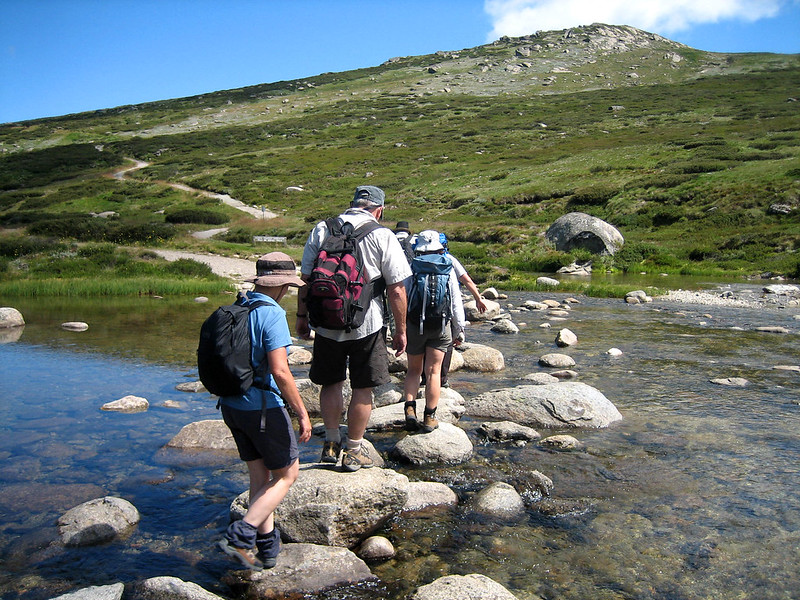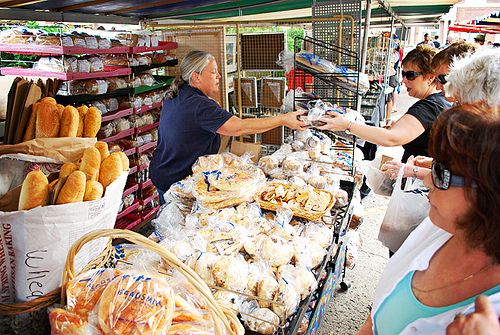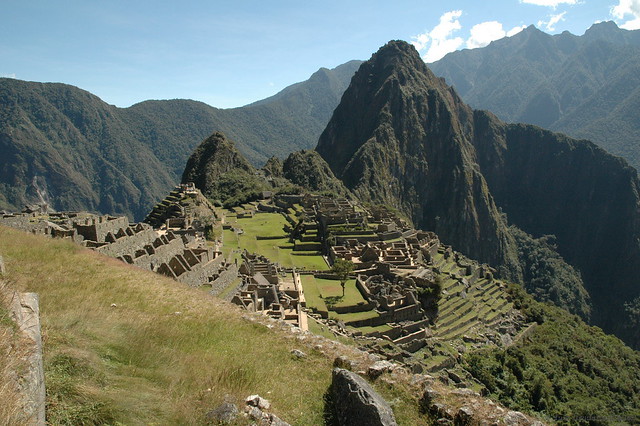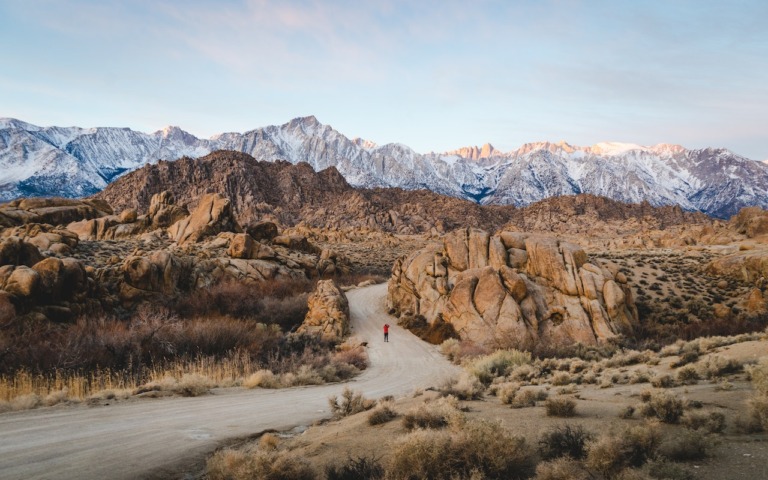Eco-Friendly Travel Tips: How to Leave No Trace

Traveling offers an incredible way to explore the world, but it also comes with the responsibility to care for the places we visit.
That’s where Leave No Trace (LNT) principles come into play.
These seven guidelines were created to help travelers minimize their impact on the environment and ensure that destinations stay beautiful and accessible for everyone.
Eco-friendly travel isn’t just a passing trend—it’s a commitment to making thoughtful choices that protect the planet.
It’s about packing smarter, treading lighter, and being mindful of how our actions affect the places and people we encounter.
By embracing Leave No Trace principles, you’re not only helping to preserve natural spaces but also supporting local communities.
From reducing waste to respecting cultural traditions, these practices ensure that travel remains a positive experience for everyone—now and in the future.
🌿 From solar-powered resorts to off-grid cabins, book your ideal eco-friendly accommodation here.
What Does Leave No Trace Mean?
“Leave No Trace” is a simple yet powerful concept: leave a place exactly as you found it—or better.
In the context of travel, it means minimizing your environmental and social impact so future generations can enjoy the same beauty and cultural richness you experience today.
The seven Leave No Trace principles provide a practical framework for responsible travel:
- Plan Ahead and Prepare
- Travel and Camp on Durable Surfaces
- Dispose of Waste Properly
- Leave What You Find
- Minimize Campfire Impacts
- Respect Wildlife
- Be Considerate of Others
✈️ Explore the world while staying eco-conscious. Start with the best flight options here.
While these principles were initially created with outdoor activities like camping in mind, they apply to every aspect of travel.
Whether you’re hiking in a national park, wandering through city streets, or staying at a resort, practicing these principles helps preserve the environment, protect local wildlife, and respect the communities you visit.
Adopting Leave No Trace practices goes beyond reducing harm—it’s about becoming a conscious traveler.
By following these guidelines, you help ensure that the destinations you love remain just as vibrant for future visitors.
Eco-Friendly Travel Tips for Practicing Leave No Trace
Making eco-friendly choices while traveling goes a long way toward preserving the beauty and integrity of the destinations you visit. By incorporating Leave No Trace principles into your travel habits, you ensure that your adventures leave a positive impact on the environment and local communities. Here’s how to put these principles into action:
🛌 Relax in a place that aligns with your values. Browse sustainable options here.
Plan Ahead and Prepare
Proper planning is the foundation of Leave No Trace travel. It ensures you’re ready for whatever your trip brings while minimizing your impact.
- Research your destination: Look up local weather, cultural norms, and any regulations specific to the area, such as fire restrictions or waste disposal rules.
- Pack smart: Opt for durable, multi-use, and eco-friendly gear, such as reusable water bottles, versatile clothing, and compact toiletries. Not only does this reduce waste, but it also lightens your load.
- Choose alternative destinations: Popular spots can suffer from over-tourism, leading to environmental damage and overcrowding. Explore lesser-known locations to enjoy a unique experience and reduce strain on heavily trafficked areas.
Planning isn’t just about logistics—it’s about being intentional with your choices to minimize your environmental and social footprint.
🌏 Make every mile matter. Book flights for your next sustainable getaway here.
Reduce Plastic Waste
Plastic pollution is one of the most significant threats to our planet, and travelers can make a big difference by reducing single-use plastics.
- Bring reusable essentials: Carry a refillable water bottle, travel-friendly utensils, and cloth shopping bags to avoid disposable alternatives. Many destinations now provide water refill stations, making this choice even easier.
- Opt for eco-friendly toiletries: Use shampoo bars, solid lotions, and reusable travel-size containers to cut down on packaging waste. Avoid relying on single-use hotel products that often contribute to plastic pollution.
- Say no to straws and extra packaging: Skip unnecessary plastics like straws or overly packaged goods when dining out or shopping. Small changes add up to big impacts.
By refusing single-use plastics, you help keep natural spaces cleaner and more enjoyable for everyone.
🌍 Support local communities with your stay. Find accommodations that give back here.
Choose Sustainable Accommodations
Where you stay can have a significant impact on the environment. By choosing accommodations that prioritize sustainability, you support efforts to reduce tourism’s ecological footprint.
- Stay in green-certified places: Look for eco-lodges, hostels, or hotels that implement sustainable practices like energy efficiency, renewable energy, and waste reduction.
- Support local businesses: Opt for accommodations that source locally and give back to their communities through conservation efforts or social initiatives.
- Reduce your resource use: Conserve energy and water by reusing towels, taking shorter showers, and turning off lights and air conditioning when not in use.
Your choice of accommodation can directly influence the environment and set an example for other travelers.
🌿 Choose the smarter way to fly. Find efficient routes and save on your next eco-trip here.
Support Local Communities
Travel is a two-way exchange—while you explore, you also have the chance to give back to the communities that host you.
- Eat locally: Dine at family-owned restaurants or markets to support local farmers and chefs while experiencing authentic cuisine.
- Shop small: Purchase souvenirs and goods from local artisans instead of large chains. This supports small businesses and helps preserve cultural traditions.
- Join local tours: Opt for locally guided tours that provide an authentic perspective and support the community economically.
Investing in local businesses helps create a sustainable tourism industry and ensures that your travel dollars benefit the people who live there.
🏕️ Whether it’s an eco-lodge in the mountains or a chic urban stay, book the perfect place here.
Use Eco-Friendly Transportation
Transportation is one of the largest contributors to carbon emissions in tourism, but small choices can make a big difference.
- Walk or bike: Explore cities and towns on foot or by bike to reduce your carbon footprint and fully immerse yourself in the local atmosphere.
- Take public transportation: Buses, trains, and shared rides not only lower emissions but also let you experience travel from a local’s perspective.
- Offset your air travel: When flying is unavoidable, participate in carbon offset programs that support conservation projects, like reforestation or renewable energy initiatives.
Eco-friendly transportation allows you to see more while leaving less of an impact behind.
✈️ Off to a hidden gem? Find budget-friendly flights to lesser-known destinations here.
Respect Wildlife and Natural Spaces
Wildlife and ecosystems are fragile, and travelers must tread lightly to protect them.
- Observe from a distance: Admire animals in their natural habitat without approaching or feeding them. Feeding wildlife can disrupt their diet, behavior, and safety.
- Stick to trails: Established paths prevent habitat destruction and erosion while keeping you safe.
- Leave nature undisturbed: Avoid picking flowers, collecting rocks, or taking any other natural items as souvenirs. Take pictures instead to preserve memories without damaging the environment.
Respecting wildlife and natural spaces ensures their survival for future visitors and generations.
🏨 Looking for an eco-conscious retreat? Discover green accommodations perfect for your travel plans here.
Be Considerate of Others
Being mindful of other people is an often-overlooked but essential aspect of responsible travel.
- Keep noise to a minimum: Avoid using portable speakers or being loud in public spaces. Respect the serenity of natural areas and the peace of others.
- Yield on trails and public spaces: Step aside for others when hiking, biking, or walking. Be patient and kind, whether waiting in line or navigating crowded areas.
- Engage with cultural sensitivity: Learn a bit about the local culture and customs before you visit. Approach differences with curiosity and respect.
Creating a positive atmosphere allows everyone to enjoy their travels and fosters goodwill among visitors and locals alike.
By implementing these eco-friendly travel tips, you contribute to a healthier planet, stronger communities, and more meaningful experiences. Small actions make a big difference, and every step you take toward sustainable travel leaves the world a little better for those who come after you.
🌎 Dreaming of an eco-adventure? Book flights that fit your travel goals here.
Bonus Tips for Responsible Travel
While the seven Leave No Trace principles lay the groundwork for eco-friendly travel, there are additional ways to go the extra mile in practicing responsible tourism. These bonus tips can further enhance your commitment to sustainable travel and deepen your connection to the places you visit.
Practice Voluntourism
Voluntourism combines travel with giving back. Whether you participate in a beach cleanup, assist with community development projects, or help with wildlife conservation efforts, voluntourism allows you to contribute meaningfully to the destinations you visit.
- Get involved locally: Look for opportunities to volunteer during your trip, such as joining a cleanup drive or supporting disaster relief efforts.
- Start small: Even picking up litter during a hike or along the beach during a family trip can make a difference.
- Choose reputable organizations: Partner with programs that prioritize long-term community benefits over short-term tourism gains.
🌿 Stay somewhere that respects the planet. Check out these sustainable accommodations here.
Voluntourism not only supports the environment and local communities but also adds a rewarding layer to your travel experience.
Rethink Creature Comforts

Adopting sustainable habits doesn’t mean sacrificing comfort—it means being more intentional with the choices you make.
- Eco-friendly personal care: Swap out disposable products for eco-friendly alternatives like shampoo bars, bamboo toothbrushes, and reusable razors.
- Limit resource usage: Reuse towels, skip daily sheet changes, and take shorter showers at your accommodations. Turn off lights, air conditioning, and electronics when not in use.
- Travel light: Minimize the items you pack to reduce your overall carbon footprint, both during transportation and your stay.
By rethinking creature comforts, you can reduce your impact on the environment without compromising your experience.
🌟 Travel green and hassle-free. Compare flights to your dream destinations now.
Be Mindful of Geotagging
Social media can be a powerful tool for spreading awareness about beautiful destinations, but it can also lead to over-tourism and environmental strain. Being mindful about how you share your travels can help protect these places.
- Skip the exact location: Instead of tagging specific spots, consider tagging general areas to avoid drawing large crowds to fragile locations.
- Educate through your posts: Use your platform to share Leave No Trace principles and encourage responsible tourism.
- Highlight lesser-known destinations: Promote alternative spots to alleviate pressure on over-visited attractions.
Responsible sharing ensures that future travelers can enjoy these destinations without causing harm to the environment or local communities.
These bonus tips empower you to take your eco-friendly travel habits a step further. By practicing voluntourism, rethinking your use of resources, and being mindful of your digital footprint, you can leave a lasting positive impact while exploring the world responsibly.
🛏️ Book a green-certified lodge or a cozy boutique hotel for your next trip. Explore options here.
Frequently Asked Questions (FAQs)
1. What is Leave No Trace travel, and why is it important?
Leave No Trace travel is the practice of minimizing your environmental and social impact while exploring new destinations. It focuses on preserving natural spaces, respecting wildlife, and supporting local communities. By following Leave No Trace principles, travelers ensure that the beauty and resources of these places remain intact for future generations.
2. How can I reduce my plastic waste while traveling?
Reducing plastic waste is simpler than you might think:
- Bring reusable items like water bottles, shopping bags, and utensils to avoid single-use plastics.
- Choose solid or refillable toiletries over disposable ones.
- Avoid packaged snacks and opt for fresh, local options whenever possible.
- Stay in accommodations that offer filtered water stations or alternatives to plastic toiletries.
Small choices like these add up to significant reductions in waste.
✈️ Start your sustainable journey with the best flight deals tailored for eco-conscious travelers. Book here.
3. What are the best eco-friendly accommodations to look for?
Eco-friendly accommodations prioritize sustainability and resource conservation. Look for:
- Green certifications like LEED, Green Key, or EarthCheck.
- Hotels and lodges that use renewable energy, recycle, and conserve water.
- Properties that source products and food locally to support the community.
- Accommodations that actively contribute to environmental or social initiatives, such as reforestation projects or local education programs.
These places not only minimize their environmental footprint but also enrich your stay with meaningful contributions to the destination.
4. How do I support local communities during my trip?
Supporting local communities involves making choices that directly benefit the people who live in the area:
- Dine at locally-owned restaurants and shop at markets featuring local artisans.
- Participate in tours or activities led by locals for an authentic experience.
- Respect cultural norms and traditions by learning about them before you visit.
- Contribute to community-based projects or initiatives, such as voluntourism opportunities.
Every dollar spent locally helps sustain jobs, preserve cultural traditions, and empower communities.
5. What are some easy ways to offset my carbon footprint while traveling?
Offsetting your carbon footprint helps balance out the emissions caused by your travel. Easy ways to do this include:
- Participate in carbon offset programs when booking flights or tours. These programs often fund renewable energy projects, reforestation, or conservation efforts.
- Use public transportation, walk, or bike instead of relying on cars.
- Stay in accommodations that invest in energy-efficient practices or alternative energy sources.
- Reduce energy consumption by limiting air conditioning, heating, and water use during your stay.
These small actions collectively make a big difference in reducing the impact of your travel.
🏡 Find eco-friendly stays that support sustainable tourism. Start your search here.
Travel Responsibly, Leave a Legacy
Travel is a privilege, and with that privilege comes the responsibility to care for the places we explore.
By adopting Leave No Trace principles, we can ensure that the destinations we love remain beautiful, vibrant, and accessible for generations to come.
From planning ahead and reducing waste to supporting local communities and respecting wildlife, each of these eco-friendly travel tips helps create a more sustainable way to experience the world.
Small changes in how we travel can make a significant impact—not just on the environment but also on the people and cultures that make each destination unique.
Now it’s your turn. Start implementing these tips on your next adventure and see how much more rewarding travel can be when it’s done responsibly.
Share your journey, inspire others, and help spread the message of sustainable tourism.
Together, we can redefine what it means to explore the world—one mindful step at a time.
🌍 Ready to explore responsibly? Find the most eco-friendly flights for your next adventure here.



















